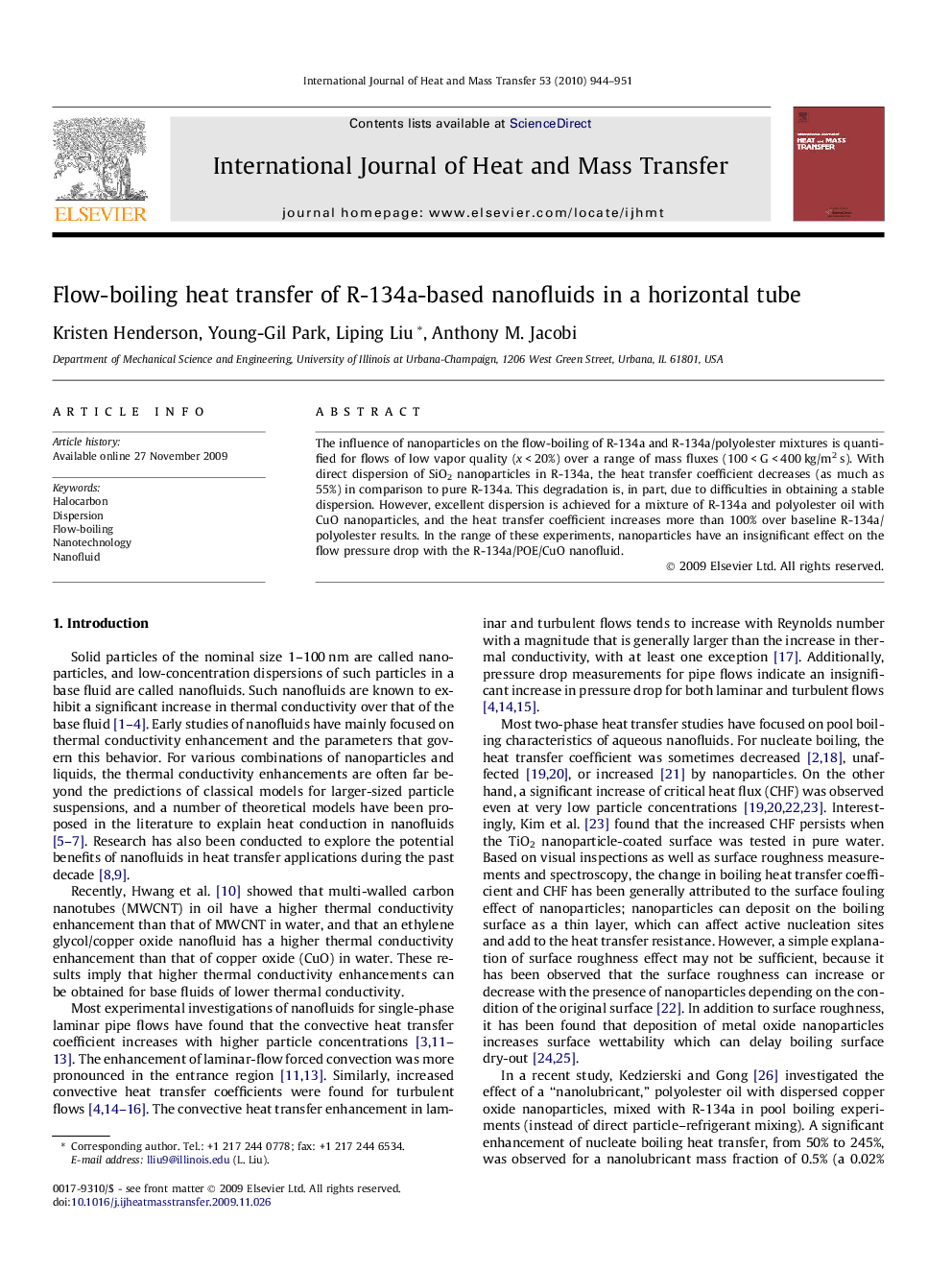| Article ID | Journal | Published Year | Pages | File Type |
|---|---|---|---|---|
| 658849 | International Journal of Heat and Mass Transfer | 2010 | 8 Pages |
The influence of nanoparticles on the flow-boiling of R-134a and R-134a/polyolester mixtures is quantified for flows of low vapor quality (x < 20%) over a range of mass fluxes (100 < G < 400 kg/m2 s). With direct dispersion of SiO2 nanoparticles in R-134a, the heat transfer coefficient decreases (as much as 55%) in comparison to pure R-134a. This degradation is, in part, due to difficulties in obtaining a stable dispersion. However, excellent dispersion is achieved for a mixture of R-134a and polyolester oil with CuO nanoparticles, and the heat transfer coefficient increases more than 100% over baseline R-134a/polyolester results. In the range of these experiments, nanoparticles have an insignificant effect on the flow pressure drop with the R-134a/POE/CuO nanofluid.
